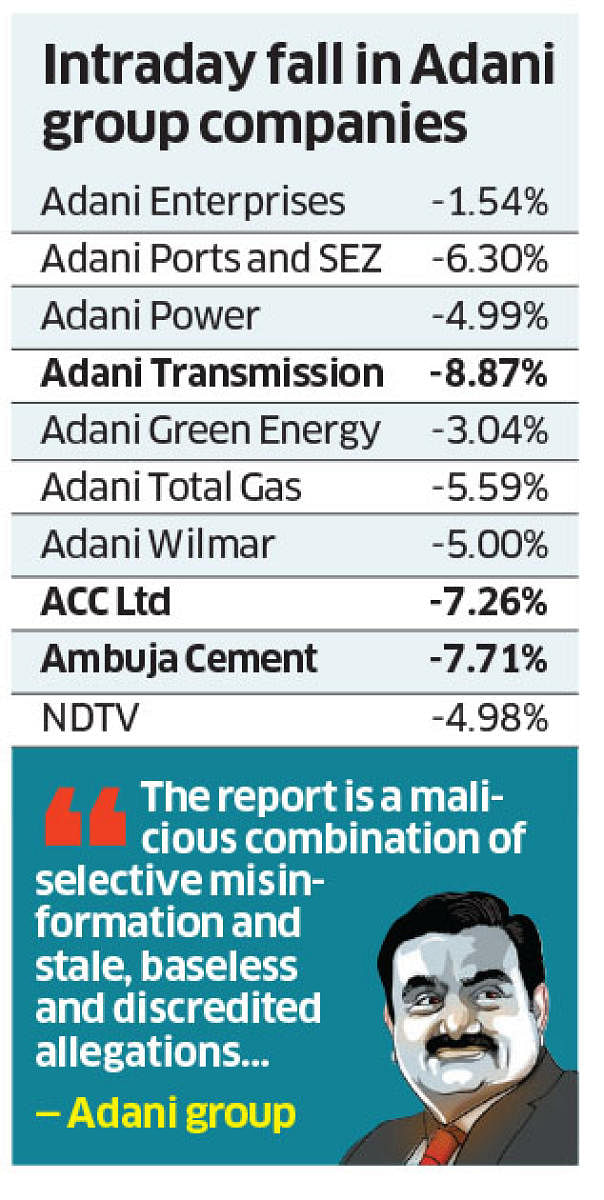

Shares in Adani Group companies lost about Rs 97,000 crore in market value on Wednesday after a US-based firm accused billionaire Gautam Adani’s ports-to-power conglomerate of pulling “the largest con in corporate history”.
Hindenburg Research, an investment research firm that specialises in short-selling, put out a report on January 24 accusing the Adani Group companies of “brazen stock manipulation and accounting fraud scheme” and said it was shorting its stocks. Shorting a stock is a bet that the share price will fall.
The report highlighted and questioned Adani’s family-controlled offshore shell entities in tax havens such as Mauritius, the United Arab Emirates and the Caribbean, the substantial debt leverage in most of the group companies and the basis of sky-high valuations. It claimed that these were used to facilitate corruption, money laundering and taxpayer theft, while siphoning money from the group’s listed companies.
“Even if you ignore the findings of our investigation and take the financials of Adani Group at face value, its seven key listed companies have 85% downside purely on a fundamental basis owing to sky-high valuations,” Hindenburg said in the report that came after a two-year probe.
The report came on the same day that a key share sale (worth about Rs 20,000 crore) from Adani Enterprises was set to open for subscription.
The Adani Group, led by Asia’s richest man, called the timing of Hindenburg’s report “a brazen, mala fide intention to undermine” and damage its share sale plan.
The report is “a malicious combination of selective misinformation and stale, baseless and discredited allegations”, Adani Group Chief Financial Officer Jugeshinder Singh said in a statement. He expressed “shock” over the report and accused the US research firm of publishing without “any attempt to contact us or verify the factual matrix”.
However, the Hindenburg report included 88 questions asking Gautam Adani for his response if he “truly embraces transparency”.
Some of the concerns highlighted in the report were not entirely new.
In August 2022, CreditSights, a unit of ratings agency Fitch, called Adani’s conglomerate “deeply overleveraged” and highlighted how the group was investing aggressively across existing and new businesses with debt. CreditSights additionally warned that “in the worst-case scenario” the group may spiral into a debt trap and possibly a default.
In the same month, Bloomberg reported that Adani Green Energy’s debt-to-equity ratio ballooned to the second-highest in Asia, raising alarm over its debt leverage.
Hindenburg, best known for its critical reports on companies in the electric vehicle industry, also questioned the existence of sufficient financial controls in the Adani Group companies. For instance, it highlighted how Adani Enterprises had as many as five different chief financial officers over the course of eight years.
Hindenburg was instrumental in bringing down the founder of Nikola, which was accused by Hindenburg in 2020 of being built on “dozens of lies”. Nikola founder Trevor Milton eventually stepped down as chairman and was found guilty of securities fraud. More recent targets include Clover Health and Lordstown Motors.
(With inputs from Bloomberg)